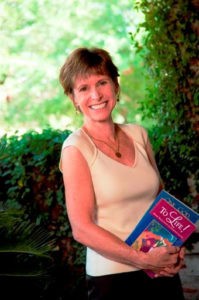The Twin Cities Jewish Community embarked on an adventure four years ago to build endowments through a partnership with the Minneapolis Jewish Federation and St. Paul Jewish Federation and the Harold Grinspoon Foundation.
With the ongoing support of these institutions, It’s Your Legacy was initiated in 2016 and today has secured almost 37 million dollars in future estimated gifts from 962 donors. Thirty Twin Cities Jewish organizations have participated over the four years to help sustain the future of our Jewish community for years to come.
On September 10, It’s Your Legacy will celebrate the generosity of these donors and the participating organizations at the 4th Annual It’s Your Legacy Celebration.
 Amy Hirshberg Lederman, public speaker, columnist, and author, will be featured at the event. Read on for a preview of her philosophy on the importance of legacy giving.
Amy Hirshberg Lederman, public speaker, columnist, and author, will be featured at the event. Read on for a preview of her philosophy on the importance of legacy giving.
—
For over 68 years, my parents lived a full and very active life together. They were blessed with good genes and longevity and had the privilege of watching their five grandchildren and four great grandchildren grow up. But in 2018 on Kol Nidre night, just three months shy of 100, my Dad passed away and life, as Mom knew it, was forever changed.
Now, at 94, Mom lives alone, surrounded by loving caretakers. Her world has become restricted— not so much by COVID as by age, physical limitations, and the loss of much of what and whom she cherished all her life.
Mom is wheelchair-bound but her mind is impressively agile. I marvel at her deep interest in politics, the two book clubs to which she belongs, her weekly bridge game, and most of all, her constant contact with family. Her limitation of movement in no way restricts her capacity to offer guidance, inspiration, and wisdom.
One such moment came this past Thanksgiving when a dozen family members came together to be with her. Amidst the turkey and cranberry sauce, Mom opened up the conversation, holding court like a queen. She had an agenda and wanted to elevate the conversation beyond talk of politics and sweet potato recipes.
She turned her focus on her 16-year-old great-grandson and asked: “Tell me, Andy, what’s important to you now?”
After some serious blushing and stammering, he opened up and told us that he was concerned about immigrants and refugees, especially the younger children who had no resources or family. A group of students at his school were raising funds to help them get supplies and legal help. Then his 12-year-old brother joined in, sharing that he wanted to volunteer with underprivileged kids near the Philadelphia neighborhood where they live. Uncle Jake told of his work as a Big Brother in California while my mother continued to ask pointed questions getting them to share more of their thoughts and feelings.
I watched in amazement as Mom held counsel, guiding the conversation skillfully until it reached its natural conclusion – dessert.
“I want to do more, give more, too,” Mom confided. “It’s human to want to give. But first, you have to figure out what you care about most – and why. Giving is more than making a donation; it’s making a difference!”
Bingo! Mom’s wisdom was the perfect elevator speech for giving from the heart. In my previous work as a Legacy Consultant for the Jewish Community Foundation of Southern Arizona, I saw first-hand the impact of thoughtful philanthropic giving. I saw our Tucson community – both Jewish and non-Jewish – grow from the endowments and gifts of people who cared about issues from social justice and climate change to cancer, pet care, and the arts.
But giving requires some soul searching and questions often asked include: How much should I give? How do I prioritize my gifts? Should I support Jewish organizations over secular ones? Should I give now or wait until I die?
The Jewish tradition doesn’t speak in terms of charity. Rather, we take our marching orders from the mitzvah of Tzedakah, or righteousness in Hebrew. Tzedakah is the hand-maiden to Tikkun Olam, the Jewish obligation to repair the world. Together, they form a call to action, to consciously distribute a part of what we have to care for others. We don’t give because it feels good (although it does feel good.) We give because we’re Jews.
Jewish law prioritizes the poor of our own community over the poor living elsewhere, except priority is given to the poor in Israel. We give in concentric circles: starting with our own family and community and then expanding out into the larger world, which includes Jews and non-Jews alike. The Talmud specifically recognizes that any needy person who lives peacefully with us is worthy of charity.
During our lives, we will undoubtedly have times when our ability to give may be restricted. And yet it is times like now – when COVID has ravaged our economy and caused a global health crisis unparalleled to anything we have ever known, that Jewish tradition requires us to step up and make a difference.
No matter how much or how little we have, tzedakah is an ‘equal opportunity mitzvah.’ As our sages taught: “To the one who is eager to give, God provides the means.”
—Amy Hirshberg Lederman
—
For more information about It’s Your Legacy, visit jewishtwincities.org/legacy, or email Susan Lieberman at [email protected].
To register for the 4th Annual It’s Your Legacy Celebration, visit bit.ly/IYL2020.
This article is part of TC Jewfolk’s Partnership program. For more information, check out our media kit.

